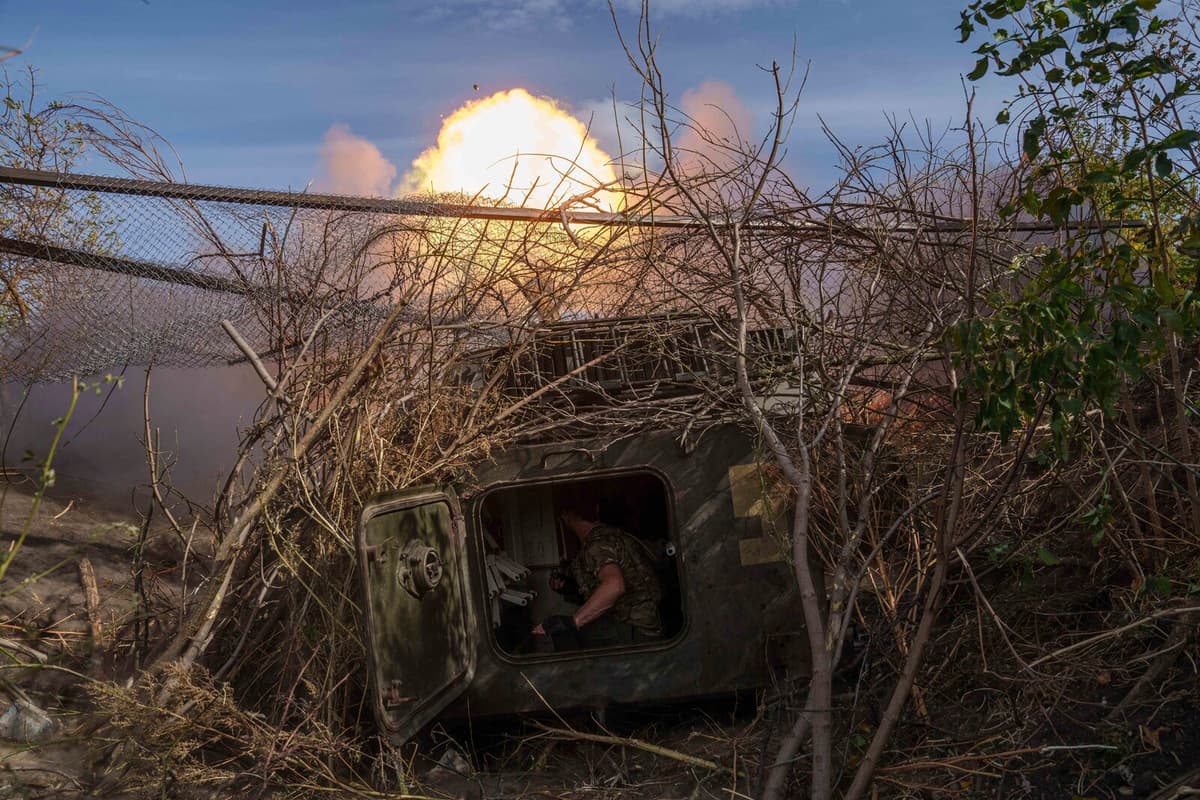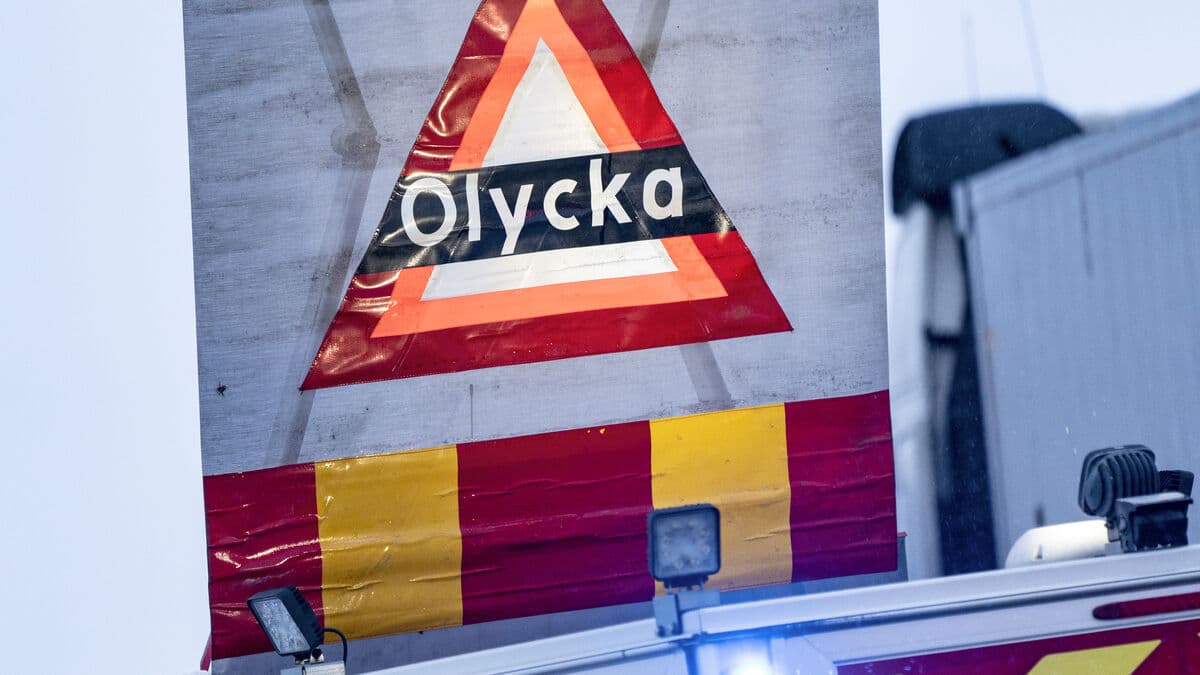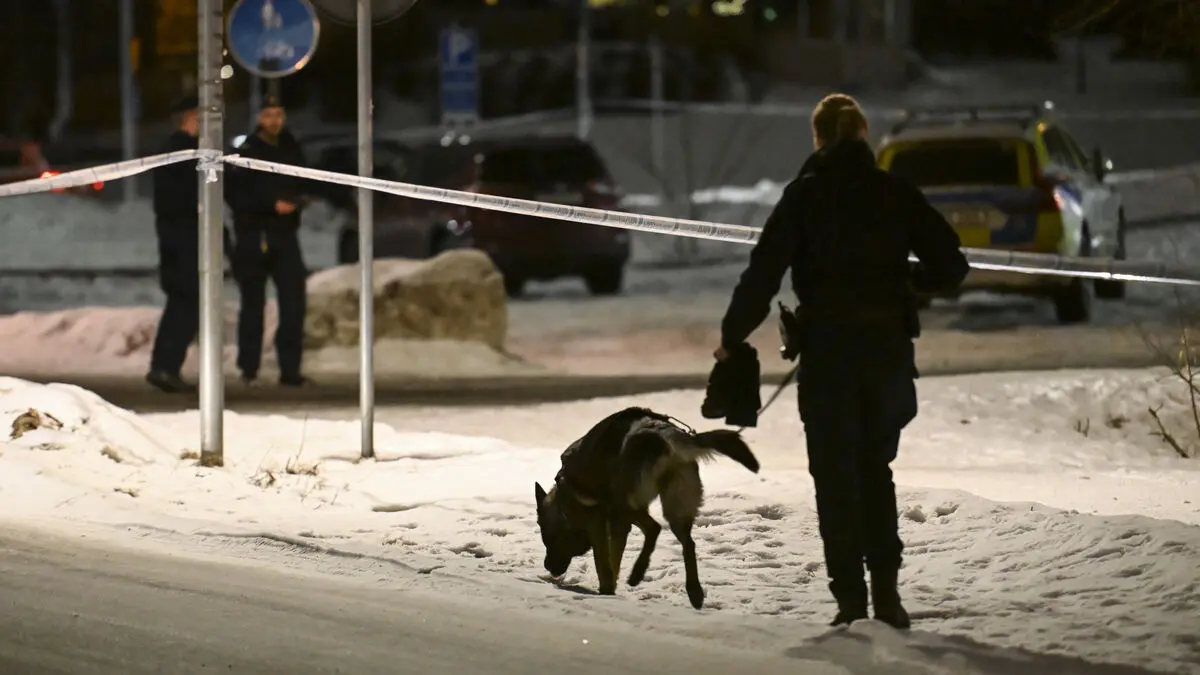When Ukraine launched a surprise counter-invasion of Russia two months ago, it was seen as a way to boost the morale of the Ukrainian military's pressured leadership.
It was also seen as a way for Ukraine to force Russia to shift forces from the burning battles on the front line in eastern Ukraine to defensive positions on home soil.
But that has not happened, at least not to a significant extent.
The enemy may have withdrawn from some other directions, maybe they called in reserves, but we haven't felt any significant change here, says Ukrainian soldier Oleksandr to news agency AFP in Toretsk, a small industrial town on the front line in Donetsk where Russian forces are approaching.
"Has been of great help"
It's been over two months since Ukrainian forces took the step into Russian Kursk. They broke a pattern where the battles seemed to have stalled in a war of attrition and, initially, caught the Russians off guard.
The Russian military has regrouped and Ukraine is no longer advancing. But they are still holding the fort on occupied territory. Many Russians have been taken prisoner.
"It has been of great help to our country and continues to be so," Ukrainian President Volodymyr Zelenskyj announced earlier this week.
The offensive into Russian Kursk has slowed down Russia's advance in eastern Ukraine, according to Zelenskyj. But the Russian invasion forces are still believed to have captured more territory in recent weeks than in a long time.
Breakthrough believed to be near
It has come at a high price, with an exceptionally high number of Russian casualties. But it is believed that it will not take many more steps for the Ukrainian defense in Donetsk to collapse.
Among prominent war analysts, opinions are divided on whether Ukraine's counter-invasion is successful.
Several Ukrainian soldiers who AFP speaks to express pride over their country's ability to strike back. But there is also concern.
If it's a long-term operation and we intend to stay in Kursk, it will exhaust our most important resources, says soldier Bogdan, at a café in Druzjkivka a few miles from the front line.
Another Ukrainian front-line soldier wonders what the next step is:
Where will we get the people, strength, and tools to continue this journey, or somehow complete it? Only God knows how this will end.
On February 24, 2022, Russia launched a large-scale invasion of Ukraine, after already having entered the neighboring country in 2014, which led to the annexation of the Crimean Peninsula and a largely frozen conflict in Donbass in the east.
In a lightning-fast offensive from the north, east, and south, the Russian forces met resistance. They did not reach Kiev, but advanced along the southern coast to the Crimean Peninsula. The coastal city of Mariupol fell after a long and bloody siege.
Ukraine carried out two counter-offensives in the fall of 2022, where they retook the Kharkiv region in the northeast and the major city of Kherson and its surroundings in the south. In connection with this, Russia announced that it would annex the partially occupied regions of Kherson, Donetsk, Luhansk, and Zaporizhzhia.
A larger Ukrainian counter-offensive began in the summer of 2023, but failed to break through a then-fortified Russian defense. In August 2024, Ukrainian forces entered Russia and occupied part of the Kursk region.
Russia has regularly attacked locations across Ukraine with rockets and drones. At least ten thousand civilians have been killed in the war, but the true figure is believed to be much higher. Several million Ukrainians have fled abroad.






